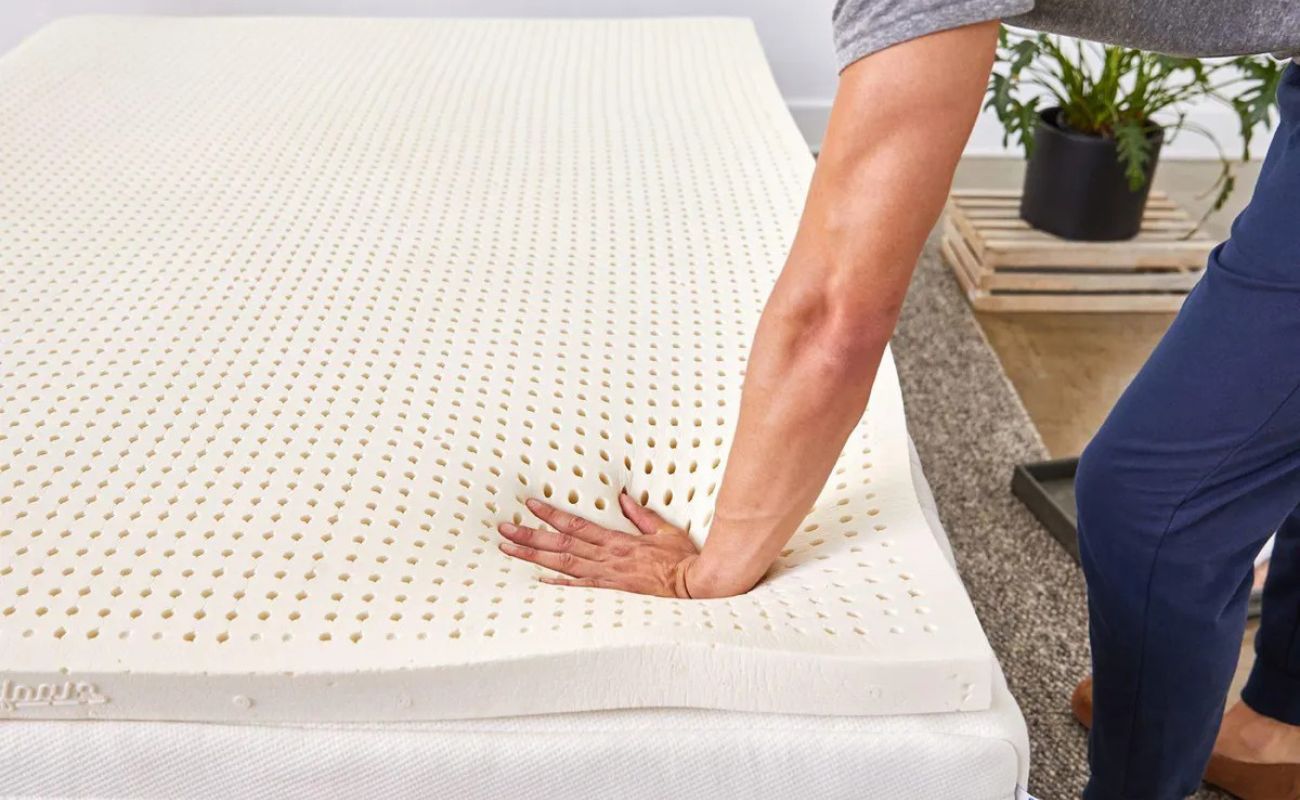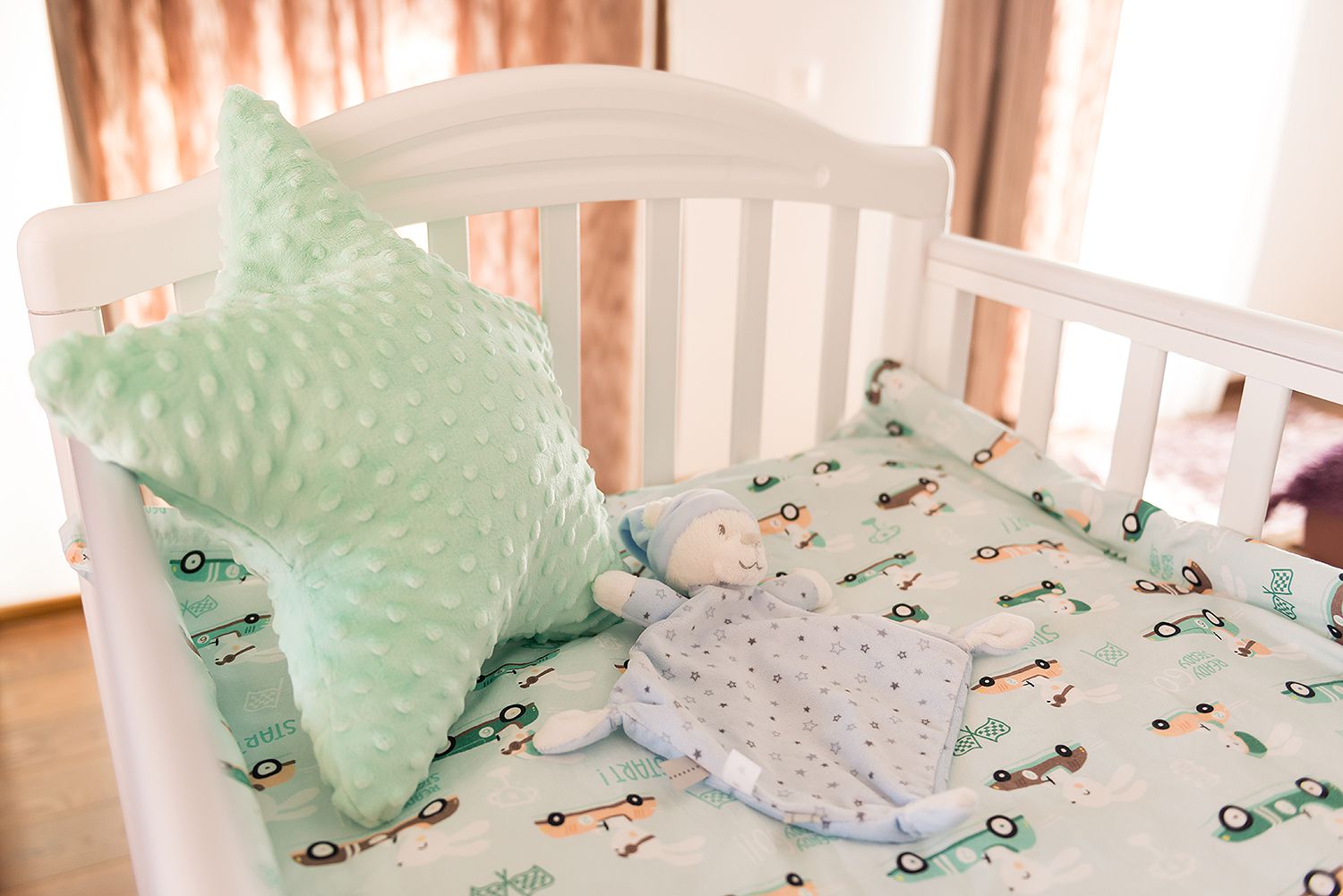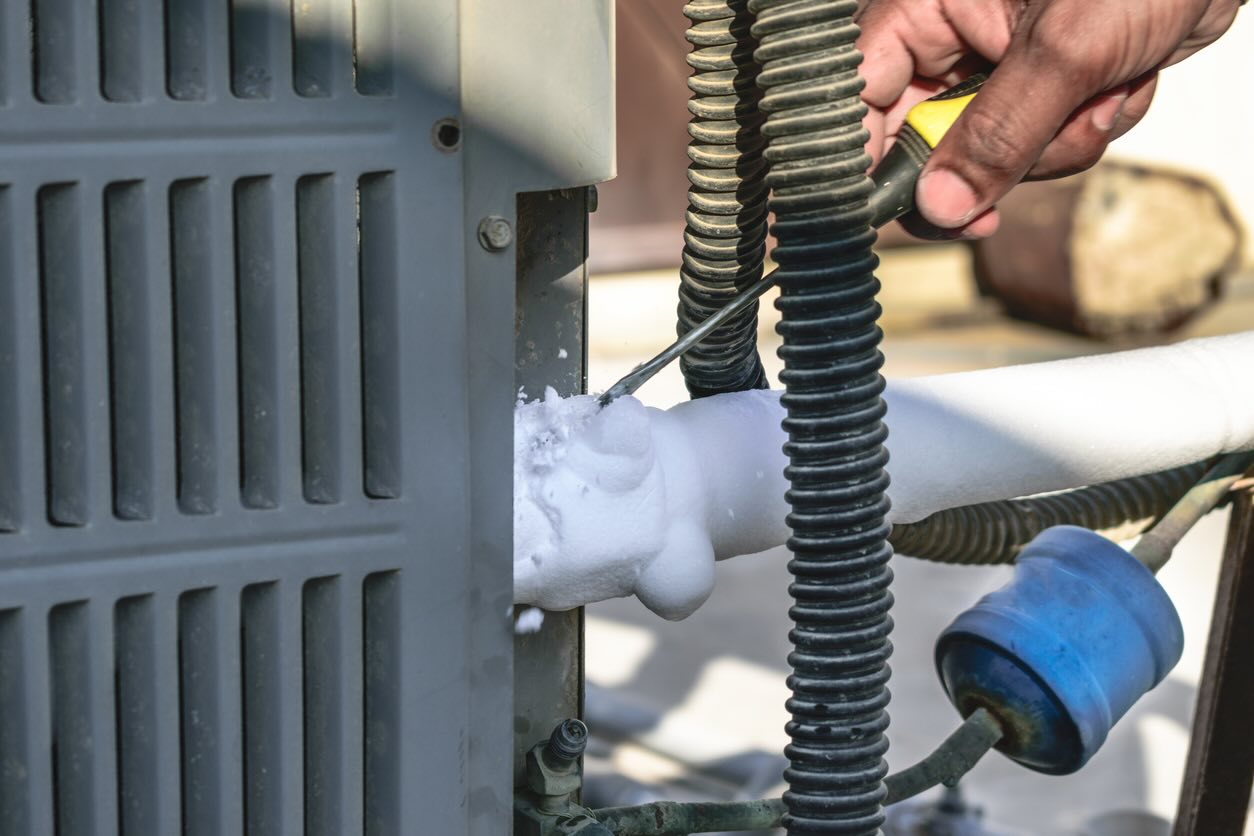Home>Furniture>Bedroom Furniture>How To Tell If Your Mattress Is Too Soft


Bedroom Furniture
How To Tell If Your Mattress Is Too Soft
Modified: January 6, 2024
Find out if your bedroom furniture is causing back pain and sleepless nights. Learn how to determine if your mattress is too soft and what you can do about it.
(Many of the links in this article redirect to a specific reviewed product. Your purchase of these products through affiliate links helps to generate commission for Storables.com, at no extra cost. Learn more)
Introduction
Having a comfortable and supportive mattress is essential for a good night’s sleep. However, sometimes we may find ourselves with a mattress that is too soft, causing us to toss and turn throughout the night. But how can you tell if your mattress is indeed too soft?
In this article, we will explore the signs that indicate your mattress may be too soft and provide practical solutions to help you achieve the perfect balance of support and comfort.
When a mattress is too soft, it fails to provide adequate support to your body. This can result in various issues, including body aches, poor sleep quality, and even aggravation of allergies. By understanding the signs of a too soft mattress and knowing how to assess its firmness, you can take the necessary steps to improve your sleep environment.
So, let’s dive into the indications that your mattress may be too soft and explore the solutions available to address this common sleeping problem.
Key Takeaways:
- Signs of a too soft mattress include lack of support, body aches, poor sleep quality, sinkage, and allergies. Testing firmness and considering a mattress topper or new mattress can improve sleep.
- Assessing sleep position and mattress age can help determine if a mattress is too soft. Adding a mattress topper or adjusting the foundation can enhance firmness, while purchasing a new mattress may be necessary for long-term comfort.
Read more: How To Tell If A Mattress Is Too Soft
Signs of a Too Soft Mattress
While some people prefer a plush feel, it is crucial to distinguish between a comfortably soft mattress and one that is too soft. Here are some common signs that indicate your mattress may be too soft:
- Lack of Support: One of the most apparent signs of a too soft mattress is a lack of support. When you lie down, you may feel like you’re sinking too deeply into the mattress, causing your body to be misaligned. This lack of support can lead to uncomfortable pressure points and potential issues with your posture.
- Body Aches and Pains: If you wake up with frequent body aches and pains, especially in your neck, shoulders, or lower back, it may be a sign that your mattress is too soft. When your body doesn’t receive adequate support, it can lead to muscle tension and misalignment, resulting in discomfort.
- Poor Sleep Quality: A too soft mattress can also lead to poor sleep quality. You may find yourself tossing and turning throughout the night, struggling to find a comfortable position. This can result in restless sleep, frequent awakenings, and an overall feeling of fatigue in the morning.
- Sinkage and Sagging: Another indication of a too soft mattress is noticeable sinkage and sagging. When the mattress lacks proper support, it can develop indentations over time, particularly in the areas where your body weight is concentrated. This can make it challenging to maintain a comfortable sleep surface.
- Allergies and Dust Mites: Soft mattresses often have a greater tendency to trap allergens like dust mites, which can contribute to allergies and respiratory issues. If you find that your allergies are aggravated or you experience more frequent congestion and sneezing while in bed, it may be a sign that your mattress is too soft.
If you notice one or more of these signs, it’s time to assess your mattress’s firmness and consider potential solutions to improve your sleeping experience. In the next sections, we will discuss how to test your mattress’s firmness and explore options for addressing a too soft mattress.
Lack of Support
One of the most significant signs that your mattress may be too soft is a lack of support. When you lie down on a too soft mattress, you may notice that your body sinks too deeply, causing your spine to become misaligned. This lack of support can lead to a variety of issues, including discomfort, fatigue, and poor sleep quality.
When your mattress doesn’t provide adequate support, it fails to distribute your body weight evenly. This can result in increased pressure on certain areas, such as your shoulders and hips, leading to the development of painful pressure points. Over time, these pressure points can cause stiffness and aches, making it difficult to get a restful night’s sleep.
Furthermore, a too soft mattress can negatively affect your posture. When your body is not properly supported while you sleep, it can lead to spinal misalignment. This misalignment can put strain on your muscles, ligaments, and joints, leading to chronic pain and discomfort.
To determine if your mattress lacks support, pay attention to how your body feels when you lie down and wake up. If you notice that you frequently wake up with aching muscles, particularly in your back, neck, and shoulders, it may be a sign that your mattress is too soft.
Additionally, try observing your sleeping posture. If you find yourself sinking too deeply into the mattress, with your body forming unnatural curves or angles, it’s likely that the mattress is not providing the necessary support.
If you suspect that your mattress lacks support, it may be time to consider solutions to address this issue. In the next sections, we will explore various options, such as adding a mattress topper, adjusting the foundation or bed frame, or purchasing a new mattress, to help you achieve the optimal level of support for a restful night’s sleep.
Body Aches and Pains
Waking up with body aches and pains is a clear indication that your mattress may be too soft. While a comfortable mattress should provide relief and support to your body, a too soft mattress can lead to discomfort and exacerbate existing pain issues.
When your mattress is too soft, it fails to adequately support your body’s natural alignment. As a result, certain pressure points, such as your shoulders, hips, and lower back, may bear the brunt of your body weight. Over time, this can cause these areas to become sore, tender, and achy.
If you already suffer from conditions like arthritis, back pain, or joint problems, sleeping on a too soft mattress can exacerbate your symptoms. The lack of support can contribute to increased pressure on your joints and spine, leading to increased pain and stiffness.
In some cases, a too soft mattress may also contribute to poor circulation. When you sink too deeply into the mattress, blood flow to your muscles and limbs may be restricted, resulting in numbness, tingling, and added discomfort.
To determine if your mattress is causing body aches and pains, pay attention to how you feel when you wake up in the morning. If you consistently experience stiffness and soreness, particularly in your back, neck, and hips, it’s likely your mattress is contributing to your discomfort.
It’s important to address this issue as prolonged exposure to a too soft mattress can lead to chronic pain and long-term issues with your musculoskeletal system. By taking steps to improve the support and firmness of your mattress, you can alleviate these aches and pains and improve your overall sleep quality.
In the following sections, we will explore potential solutions to address a too soft mattress, such as adding a mattress topper, adjusting the foundation or bed frame, or ultimately, purchasing a new mattress that better suits your needs.
Poor Sleep Quality
One of the most frustrating signs that your mattress may be too soft is poor sleep quality. If you find yourself tossing and turning throughout the night, struggling to find a comfortable position, it’s likely that your mattress is not providing the support and firmness you need for a restful sleep.
A too soft mattress can disrupt your sleep in several ways. First, it can create an unstable sleep surface, causing you to feel like you’re sinking and losing balance. This constant shifting and readjusting can result in restless sleep and frequent awakenings throughout the night.
Additionally, a too soft mattress can contribute to poor spinal alignment. When your body sinks deeply into the mattress, it can cause your spine to become misaligned, leading to discomfort and pressure on your nerves. This can further disrupt your sleep and prevent you from entering deeper, more restorative stages of sleep.
As a result, you may wake up feeling groggy, fatigued, and not fully refreshed, even after a full night’s sleep. This can impact your overall well-being, productivity, and overall quality of life.
It’s essential to address the issue of poor sleep quality caused by a too soft mattress. By improving the support and firmness of your sleep surface, you can create a more stable and comfortable environment that promotes better sleep.
In the following sections, we will explore potential solutions to address a too soft mattress and improve your sleep quality. These solutions may include adding a mattress topper, adjusting the foundation or bed frame, or investing in a new mattress that better suits your needs.
Read more: What To Do If Your Mattress Is Too Soft
Sinkage and Sagging
If you notice noticeable sinkage and sagging in your mattress, it is a telltale sign that your mattress may be too soft. Over time, a mattress that lacks proper support can develop indentations and depressions, compromising its structural integrity and diminishing its overall comfort.
When a mattress is too soft, your body weight is not evenly distributed, leading to excessive compression in certain areas. As a result, you may experience sinking and sagging, especially in the areas where your body weight is concentrated, such as your hips, shoulders, and lower back.
Sinkage and sagging not only make it uncomfortable to sleep on the mattress, but they can also affect the mattress’s durability and lifespan. The excessive pressure on specific areas of the mattress can cause it to wear out faster and lose its initial support and shape.
To determine if your mattress is experiencing sinkage and sagging, inspect the surface for visible indentations or depressions. If you notice areas where the mattress has lost its firmness and seems to cave in, it is a strong indication that the mattress is too soft.
Sinkage and sagging can lead to discomfort, improper spinal alignment, and disturbed sleep. If left unaddressed, it can worsen over time, leading to more significant structural issues in the mattress.
If you are experiencing sinkage and sagging with your mattress, it may be necessary to consider solutions to improve its firmness and support. In the following sections, we will discuss possible solutions, such as adding a mattress topper, adjusting the foundation or bed frame, or ultimately, investing in a new mattress that better suits your needs.
Allergies and Dust Mites
Another issue that can arise from a too soft mattress is the potential for allergies and dust mite problems. Soft mattresses often have a greater tendency to trap allergens such as dust mites, pollen, and pet dander, which can lead to respiratory issues and allergic reactions.
Dust mites are microscopic organisms that thrive in warm and humid environments. They feed on dead skin cells and can accumulate in mattresses over time. A too soft mattress with deeper crevices and a lack of breathability can provide an ideal habitat for these allergens.
If you find yourself waking up with symptoms such as sneezing, coughing, congestion, or itchy eyes, it may be a sign that your mattress is housing dust mites and contributing to your allergies. These symptoms can be especially problematic for individuals who suffer from asthma or other respiratory conditions.
To address this issue, it is important to regularly clean your mattress and ensure proper ventilation and airflow. Vacuuming your mattress regularly can help reduce the accumulation of dust mites and other allergens. Additionally, using mattress protectors and covers that are hypoallergenic and machine washable can create a barrier between your body and the allergens.
If your allergies persist despite taking preventive measures, it may be time to consider replacing your too soft mattress with a firmer option. Opting for a mattress with materials that are resistant to dust mites and allergens, such as hypoallergenic memory foam or latex, can help alleviate symptoms and improve your overall sleep environment.
By addressing the issue of allergies and dust mites associated with a too soft mattress, you can create a healthier sleeping space and improve the quality of your sleep.
If you sink too far into your mattress and have difficulty moving or getting out of bed, it may be too soft. Look for visible sagging or lack of support to determine if your mattress is too soft.
Testing Your Mattress Firmness
When trying to determine if your mattress is too soft, it’s important to assess its firmness level. Here are a few methods you can use to test the firmness of your mattress:
- Assessing Your Sleep Position: Lie down on your mattress in your typical sleep position. Pay attention to how your body feels. If you feel like you sink too deeply into the mattress, with little to no resistance, it’s likely that your mattress is too soft. On the other hand, if the mattress feels uncomfortably firm and doesn’t conform to your body’s curves at all, it may be too hard for your liking.
- Evaluating Mattress Age and Condition: Over time, mattresses can lose their firmness and support. If your mattress is older and you’ve noticed a significant decrease in its firmness, it may be a sign that it’s too soft and needs to be replaced. Additionally, visually inspect the mattress for any signs of sagging, indentations, or wear. These are indications that the mattress is no longer providing the necessary support.
- Using the Hand Press Test: Stand beside your mattress and press your hand firmly into the middle of the mattress. If your hand sinks down easily and you feel little resistance, it’s a sign that the mattress is too soft. With a firmer mattress, you should feel more resistance and minimal sinking.
- Seeking Input from Your Sleep Partner: If you share your bed with a partner, their feedback can provide valuable insights. Take note of any complaints they have about the mattress, such as feeling like they’re rolling into the center or waking up with aches and pains. This will help you gauge if the mattress is suitable for both of your comfort preferences.
By using a combination of these methods, you can get a better understanding of the firmness level of your mattress and determine if it’s too soft for your needs. It’s important to find the right balance of support and comfort for a restful night’s sleep.
If you find that your mattress is indeed too soft, don’t worry. There are several solutions available to help you improve the firmness and support of your sleep surface. In the following sections, we will explore options such as adding a mattress topper, adjusting the foundation or bed frame, or ultimately, purchasing a new mattress that better suits your preferences.
Assessing Your Sleep Position
One of the most effective ways to determine if your mattress is too soft is by evaluating how it supports your sleep position. Different sleep positions require varying levels of firmness and support to ensure proper spinal alignment and a comfortable night’s rest.
If you’re a back sleeper, lie down on your mattress and pay attention to how your body feels. Ideally, your mattress should provide support to the natural curve of your spine, without causing excessive sinking or feeling too firm. If you feel like your hips are sinking too deeply into the mattress or your lower back lacks support, the mattress may be too soft for you.
For side sleepers, your mattress should provide enough cushioning to alleviate pressure on your shoulders and hips. If you feel like these areas are bearing too much weight or experiencing discomfort due to insufficient support, it could be an indication that the mattress is too soft.
Stomach sleepers require a slightly firmer mattress to prevent excessive sinkage of the torso, which can lead to spinal misalignment. If you feel like your body is sinking too deeply into the mattress when lying on your stomach, it’s likely that the mattress is too soft and may not provide adequate support for this sleep position.
It’s important to note that the ideal firmness level can vary from person to person based on factors such as body weight, personal preferences, and any specific health conditions. However, it’s generally recommended to choose a mattress that offers a balance between support and comfort, regardless of your sleep position.
By assessing how your mattress supports your sleep position, you can gain valuable insights into its firmness level. If you find that your mattress is not providing the necessary support for your preferred sleep position, it may be time to explore solutions to improve its firmness, such as adding a mattress topper or considering a new mattress altogether.
In the following sections, we will explore various solutions to address a too soft mattress and help you achieve the optimal firmness and support for a restful night’s sleep.
Read more: How To Tell If Your Mattress Is Bad
Evaluating Mattress Age and Condition
When assessing whether your mattress is too soft, it’s crucial to consider its age and overall condition. Over time, mattresses can lose their firmness and support, compromising their ability to provide a comfortable and restorative sleep surface.
If your mattress is more than 7-10 years old, it’s likely that it has started to deteriorate and may no longer offer the optimal level of firmness. Mattresses typically have a lifespan, and as they age, the materials can break down, leading to sagging, indentations, and a reduction in overall support.
Visually inspect your mattress for any signs of wear and tear. Look for visible sagging or indentations, especially in areas where your body weight is concentrated. These signs indicate that the mattress has lost its structural integrity and may be too soft for your needs.
An older mattress that is too soft can contribute to discomfort, poor spine alignment, and restless sleep. As a result, you may experience body aches, fatigue, and an overall decrease in sleep quality.
In addition to assessing the age of your mattress, consider any changes in your body weight or health conditions. Significant weight gain or loss can affect the overall feel and support of your mattress. Similarly, if you have developed new pain issues or health concerns, your mattress may need to be re-evaluated to ensure it provides the necessary support.
If you find that your mattress is aging and showing signs of wear, or if it no longer provides the firmness level you desire, it may be worth considering a new mattress. Investing in a high-quality, supportive mattress can make a significant difference in your sleep quality and overall well-being.
In the following sections, we will explore potential solutions to address a too soft mattress, such as adding a mattress topper or considering the purchase of a new mattress that better suits your needs.
Solutions for a Too Soft Mattress
If you have determined that your mattress is too soft and lacks the necessary support, there are several effective solutions you can consider to improve its firmness and enhance your sleep quality. Here are some potential solutions to address a too soft mattress:
- Adding a Mattress Topper: A mattress topper is a removable layer that sits on top of your mattress to provide additional cushioning and support. By selecting a firmer mattress topper, such as one made of memory foam or latex, you can add the desired level of firmness to your mattress. This solution allows you to customize the firmness without investing in a new mattress completely.
- Adjusting the Foundation or Bed Frame: Sometimes, the support system beneath your mattress can contribute to its softness. If your bed frame or foundation is too flexible or worn out, it can affect the overall firmness of your mattress. Consider replacing or reinforcing these support elements to improve the stability and firmness of your sleep surface.
- Purchasing a New Mattress: If your current mattress is old, worn out, or no longer meets your comfort needs, it may be time to invest in a new mattress. When selecting a new mattress, consider options with firmer support layers, such as memory foam or hybrid mattresses. Test the mattress in-store or take advantage of the trial period offered by online retailers to ensure it provides the desired level of firmness and support.
When exploring these solutions, it’s important to consider your personal preferences, body type, and any specific health conditions that may require additional support. What works for one person may not work for another, so take the time to find the solution that best suits your needs.
Remember, achieving the optimal balance between support and comfort is crucial for a good night’s sleep and overall well-being. By addressing the issue of a too soft mattress, you can create a more supportive and comfortable sleep environment, allowing you to wake up feeling refreshed and revitalized each morning.
Adding a Mattress Topper
If your mattress is too soft and lacking in firmness, adding a mattress topper can be a simple yet effective solution. A mattress topper is a removable layer that sits on top of your mattress, providing additional cushioning, support, and even temperature regulation. By selecting the right type of topper, you can enhance the firmness of your mattress and improve your overall sleep experience.
When choosing a mattress topper, consider opting for a firmer material that can counteract the softness of your current mattress. Here are some popular options:
- Memory Foam: Memory foam toppers can provide excellent contouring and support. Look for a topper with a higher density to ensure it offers the desired firmness level. Memory foam toppers can effectively alleviate pressure points and promote proper spinal alignment.
- Latex: Latex toppers are known for their responsiveness and durability. They can add a layer of firmness to your mattress while still offering a comfortable and supportive sleep surface. Latex is also hypoallergenic and resistant to dust mites, making it a great choice for those with allergies.
- Fiberfill or Wool: These toppers provide a plush feel while still offering some level of support. They are usually more affordable options and can add a bit of firmness to a too soft mattress.
When selecting a mattress topper, consider your personal preferences, sleeping position, and any specific health concerns you may have. It’s important to choose a topper that complements your comfort needs and helps alleviate any discomfort or pains caused by a too soft mattress.
Once you have your mattress topper, simply place it on top of your mattress and secure it with fitted sheets or mattress protectors. You may need to adjust the height and feel of your pillows to maintain good spinal alignment with the added layer of the topper.
Keep in mind that while a mattress topper can significantly improve the firmness of your mattress, it cannot completely transform an overly soft mattress into a firm one. If your current mattress is excessively worn out or no longer meets your needs despite the addition of a topper, it may be time to consider replacing it with a new mattress that provides the desired level of support.
By adding a mattress topper, you can enhance the firmness and support of your sleep surface, creating a more comfortable and restful sleep environment.
Adjusting the Foundation or Bed Frame
If your mattress is too soft, it’s worth considering whether your foundation or bed frame is contributing to the lack of support. The support system beneath your mattress plays a significant role in determining its overall firmness and stability. Making adjustments to your foundation or bed frame can help improve the support of your mattress and alleviate the softness issue. Here are some adjustments you can try:
- Replace or Reinforce the Foundation: The foundation, or box spring, provides essential support for your mattress. Over time, foundations can become worn out or lose their structural integrity, leading to decreased support. If your foundation is old or no longer in good condition, consider replacing it with a new one that offers better support. You can also reinforce the foundation by adding additional support slats or a sturdy platform.
- Check the Bed Frame: The bed frame holds the foundation and mattress in place, and it can impact the overall firmness of your sleep surface. If your bed frame is wobbly or doesn’t provide adequate stability, it can contribute to the feeling of a too soft mattress. Make sure all the bolts and connections are secure. If necessary, consider investing in a sturdy bed frame that provides better support for your mattress.
- Adjust the Bed Frame Height: The height of your bed frame can also affect the feel of your mattress. If your mattress feels too soft, lowering the bed frame can help increase the overall firmness. This can be especially helpful for individuals who prefer a firmer sleep surface.
By making adjustments to your foundation or bed frame, you can enhance the overall support and firmness of your mattress. A stable and supportive foundation is crucial in maintaining the integrity of your mattress and ensuring a comfortable and restful sleep experience.
It’s important to note that while adjusting the foundation or bed frame can improve the support of your mattress, it may not completely resolve the issue if the mattress itself is excessively worn out or lacking in firmness. If you’ve tried adjusting the foundation and still find your mattress too soft, you may need to consider other solutions, such as adding a mattress topper or purchasing a new mattress.
By taking the time to assess and adjust your foundation or bed frame, you can optimize the support and firmness of your sleep surface, improving your overall sleeping experience.
Read more: What Is The Best Soft Mattress
Purchasing a New Mattress
If your current mattress is too soft and none of the other solutions have provided the desired level of support, it may be time to consider purchasing a new mattress. Investing in a new mattress can be a significant decision, but it can greatly impact your sleep quality and overall well-being. Here are some key factors to consider when buying a new mattress:
- Firmness Level: Look for a mattress that offers the firmness level you desire. Firmness is often categorized on a scale of 1-10, with 1 being extremely soft and 10 being extremely firm. Consider your personal preferences, sleeping position, and any specific health concerns when selecting the firmness level that will provide optimal support and comfort.
- Support System: The support system of the mattress is crucial in determining its overall firmness and support. Look for mattresses with high-quality support layers, such as pocketed coils, high-density foam, or latex. These materials provide enhanced support and prevent excessive sinking, promoting proper spinal alignment.
- Comfort Layers: While you want a firmer mattress, it’s important to find a balance between support and comfort. Look for mattresses with comfortable cushioning layers, such as memory foam or pillow-top, that provide pressure relief without sacrificing support.
- Materials: Consider the materials used in the mattress. Memory foam and latex are popular options known for their ability to contour to your body and provide excellent support. They are often resilient and durable. Additionally, look for mattresses made with hypoallergenic and breathable materials if you have allergies or prefer a cooler sleep surface.
- Warranty and Trial Period: Check the warranty and trial period offered by the mattress manufacturer. A generous trial period allows you to test the mattress in the comfort of your own home, ensuring it meets your expectations. Make sure the warranty covers manufacturing defects and provides a sufficient lifespan for the mattress.
When shopping for a new mattress, it’s essential to visit mattress stores and try out different models. Spend ample time lying down in different positions and get a feel for the mattress’s firmness and support. If you prefer online shopping, read customer reviews and take advantage of the trial period to ensure the mattress meets your expectations.
Remember, purchasing a new mattress is an investment in your sleep quality and overall well-being. It’s worth taking the time to research and find the right mattress that provides the optimal firmness and support for your individual needs.
By selecting a new mattress that suits your preferences and provides the necessary support, you can ensure a more restful and comfortable sleep, waking up feeling refreshed and rejuvenated each day.
Frequently Asked Questions about How To Tell If Your Mattress Is Too Soft
Was this page helpful?
At Storables.com, we guarantee accurate and reliable information. Our content, validated by Expert Board Contributors, is crafted following stringent Editorial Policies. We're committed to providing you with well-researched, expert-backed insights for all your informational needs.












